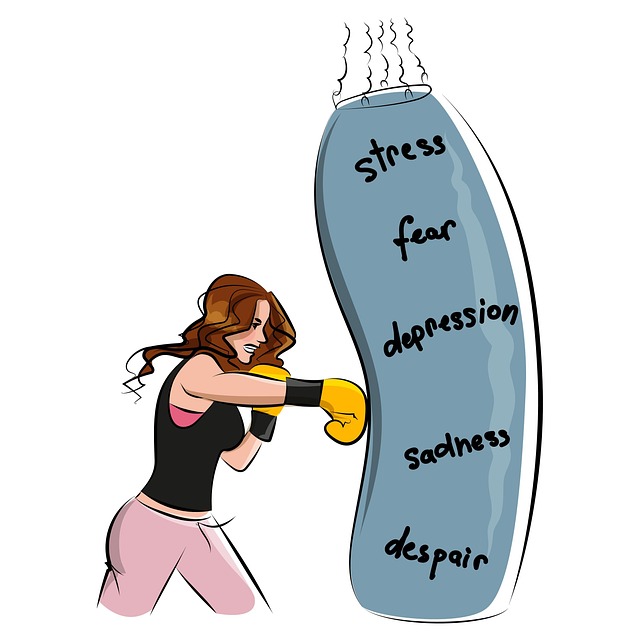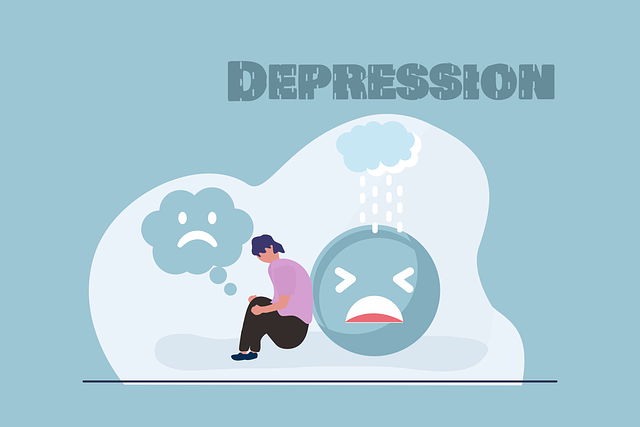Louisville's severe drug abuse crisis requires multi-faceted interventions. This includes recognizing signs of substance abuse, immediate crisis management through trained professionals, and long-term strategies like short-term counseling, peer support, and mental health education. Access to therapy, support services, and recovery programs is vital for healing, building resilience, and reducing the impact of drug abuse in Louisville. Targeted efforts focus on addressing opiate and heroin overdoses while fostering a more supportive community environment.
Louisville, like many cities, faces a significant challenge with drug abuse. Understanding the complex nature of this crisis is crucial for effective intervention. This guide delves into strategies to address substance abuse in Louisville, from identifying signs early on to building supportive networks. We explore immediate techniques, short-term counseling, and long-term recovery paths, offering valuable insights for those seeking to aid individuals affected by drug abuse, with a focus on Louisville and access to substance abuse therapy.
- Understanding Louisville's Drug Abuse Crisis
- Identifying Signs of Substance Abuse
- Immediate Intervention Techniques
- Short-Term Support and Counseling Strategies
- Building Long-Term Recovery Networks
Understanding Louisville's Drug Abuse Crisis

Louisville, a vibrant city with a rich cultural heritage, has been grappling with a significant drug abuse crisis. The issue of substance abuse is a complex and pervasive problem that demands tailored interventions. According to recent studies, the city’s drug abuse trends reveal a growing need for effective crisis intervention strategies. Louisville’s drug abuse crisis encompasses various challenges, including rising opiate and heroin overdoses, which have tragically taken a toll on communities across the metropolitan area.
This crisis necessitates a comprehensive approach that addresses not only the immediate effects of substance misuse but also focuses on long-term solutions. Coping skills development plays a pivotal role in preventing burnout and depression among individuals struggling with drug abuse. By providing access to therapy and support, Louisville can offer hope and healing to those affected by substance abuse, ultimately fostering a healthier and more resilient community.
Identifying Signs of Substance Abuse

Recognizing the signs of substance abuse is a vital step in crisis intervention. In Louisville, where drug abuse issues may be prevalent, being able to identify these indicators can help individuals seek the necessary Substance Abuse Therapy. Signs can include noticeable changes in behavior, such as increased secrecy or avoidance of social interactions. Changes in physical appearance, like poor hygiene or sudden weight fluctuations, are also red flags. Additionally, emotional shifts, such as extreme mood swings or apparent apathy, could indicate an underlying struggle with substance abuse.
Encouraging open conversations about emotional well-being and stress management can be beneficial. Louisville residents should be aware of the impact of drug abuse on mental health. By promoting Emotional Intelligence and teaching Conflict Resolution Techniques, individuals may become more adept at recognizing when help is needed. Early intervention plays a crucial role in guiding folks towards recovery and healing.
Immediate Intervention Techniques

In moments of crisis, particularly when dealing with issues like drug abuse and substance use disorders in Louisville, immediate intervention techniques are paramount to stabilize individuals and prevent further deterioration. Trained professionals employ various strategies such as active listening, empathetic communication, and calm reassurance to de-escalate situations quickly. These techniques aim to create a safe space for individuals to express their feelings and concerns without judgment, fostering trust and encouraging open dialogue.
Louisville Drug Abuse-Substance Abuse Therapy programs emphasize the importance of these immediate interventions as a stepping stone towards long-term recovery. By addressing the individual’s immediate needs, mental wellness coaching programs can be tailored to support development in managing stress reduction methods effectively. Moreover, such interventions also play a crucial role in Mental Illness Stigma Reduction Efforts by promoting understanding and empathy within the community, ultimately contributing to improved access to care and better outcomes for those battling mental health challenges.
Short-Term Support and Counseling Strategies

In situations where immediate intervention is crucial, short-term support and counseling strategies play a pivotal role in crisis management. For individuals grappling with drug abuse or substance use disorders, Louisville offers a range of specialized services tailored to address these issues promptly. The focus here is on stabilizing the individual, providing a safe space for reflection, and offering practical tools to cope with immediate distress. This may involve one-on-one therapy sessions that help in unraveling the underlying causes of addiction, alongside teaching self-care practices to manage cravings and triggers.
Counselors often employ evidence-based techniques like cognitive-behavioral therapy (CBT) to enhance coping mechanisms and build resilience. By fostering compassion cultivation practices, these interventions aim to nurture empathy and kindness towards oneself, which is essential for long-term recovery. Additionally, boosting confidence through positive reinforcement and goal-setting strategies empowers individuals to make healthier choices and take proactive steps toward a drug-free life.
Building Long-Term Recovery Networks

In Louisville, addressing drug abuse and substance use disorders requires a multifaceted approach, one that extends beyond immediate crisis intervention. Building long-term recovery networks is an integral part of fostering resilience within affected communities. By facilitating support systems among peers, individuals in recovery can find encouragement and accountability, reducing the risk of relapse. These networks empower individuals to navigate their journey towards sustained sobriety by providing a sense of belonging and accessible resources.
One effective strategy involves integrating conflict resolution techniques into community-based programs. Learning peaceful communication methods helps participants manage challenging situations, fostering healthier relationships and promoting emotional well-being. Additionally, Mental Health Education Programs Design can equip individuals with the knowledge to recognize triggers, understand their addiction, and develop coping mechanisms. Even practices like mindfulness meditation have shown promise in reducing stress and improving focus, making them valuable tools within recovery networks.
Louisville’s drug abuse crisis demands a multifaceted approach, from immediate intervention techniques to long-term recovery networks. By understanding the signs of substance abuse and implementing guidance on counseling strategies, we can foster a supportive environment for those seeking help. With dedicated short-term support and the building of resilient, interconnected communities, Louisville can navigate this challenge and promote healing through effective crisis intervention strategies. This comprehensive approach ensures that individuals receive the necessary tools for recovery and that the city’s response to the drug abuse crisis is both robust and compassionate.














